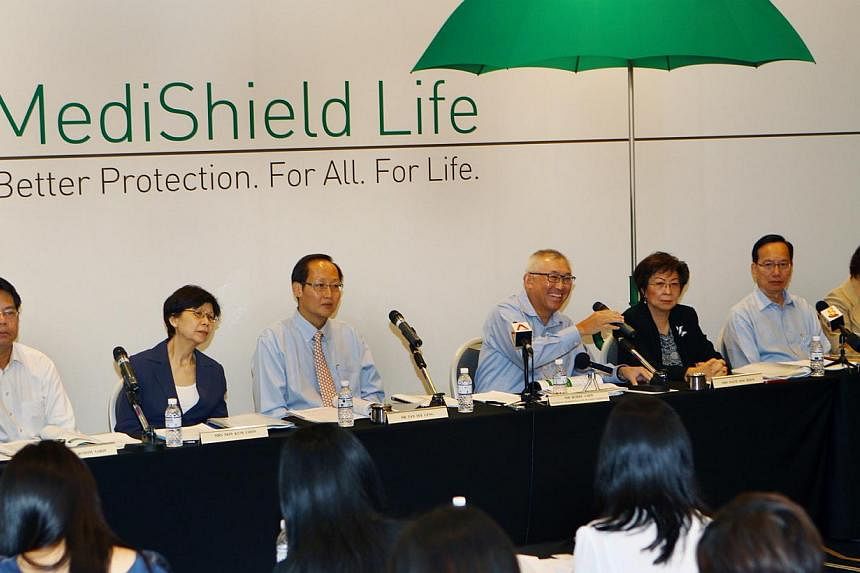SINGAPORE - The Health Ministry (MOH) is reviewing the list of serious pre-existing medical conditions, to decide which illnesses will warrant an additional premium under MediShield Life.
People who have to pay these higher premiums will be informed before the universal health insurance scheme is scheduled to start by the end of this year.
In making this announcement on Thursday, Health Minister Gan Kim Yong said: "We will adopt a fair and compassionate approach in the assessment for additional premiums."
He added that while it would be fair for those with pre-existing medical conditions to pay higher premiums to reflect the higher risks, it is also important to ensure these premiums would not be too onerous.
Their premiums will be an additional 30 per cent for the first 10 years.
Mr Gan said the Government will bear the bulk of the costs of bringing these people under insurance coverage.
For now, the MOH is working with clinicians on the review, and will share more information on the broad categories of the medical conditions later.
The focus would be on serious pre-existing medical conditions that are likely to be life threatening or have a high risk of future complications or recurrence, and therefore may require prolonged treatment, said the minister as he presented the MediShield Life Scheme Bill for debate in Parliament
To identify those with such serious illnesses, the Bill will allow the MOH and Central Provident Fund Board to access people's medical information in Government administrative databases and medical institutions, said Mr Gan.
Those who do not want to give access will have to pay the additional premium of 30 per cent for 10 years, because there will be no way to determine if they have any serious illnesses.
On premium defaulters, Mr Gan said that only those who wilfully refuse to pay up, despite having the means to do so, will have to pay a penalty.
The amount can be up to 17 per cent of outstanding premiums and any interest imposed on the outstanding premiums.
"The 17 per cent is not a recurrent penalty. It is the total maximum that can be imposed on a year's outstanding premiums. It acts as a deterrent for delaying payment, and will go towards covering the enforcement costs of recovering premiums," said Mr Gan.
He added: "Let me emphasise that the premium recovery framework and penalty are directed at this small group of freeloaders who are wilful defaulters and do not contribute their share, even though they can afford to."
The impending MediShield Life scheme has provisions to stop defaulters from leaving the country without paying what they owe in premiums.
"Those who are notified about such a direction from the recovery body and yet choose to violate the direction will be committing an offence punishable with fine or imprisonment or both," said Mr Gan.
He did not give further details on the punishment.
About two dozen Members of Parliament are scheduled to speak on the Bill.


